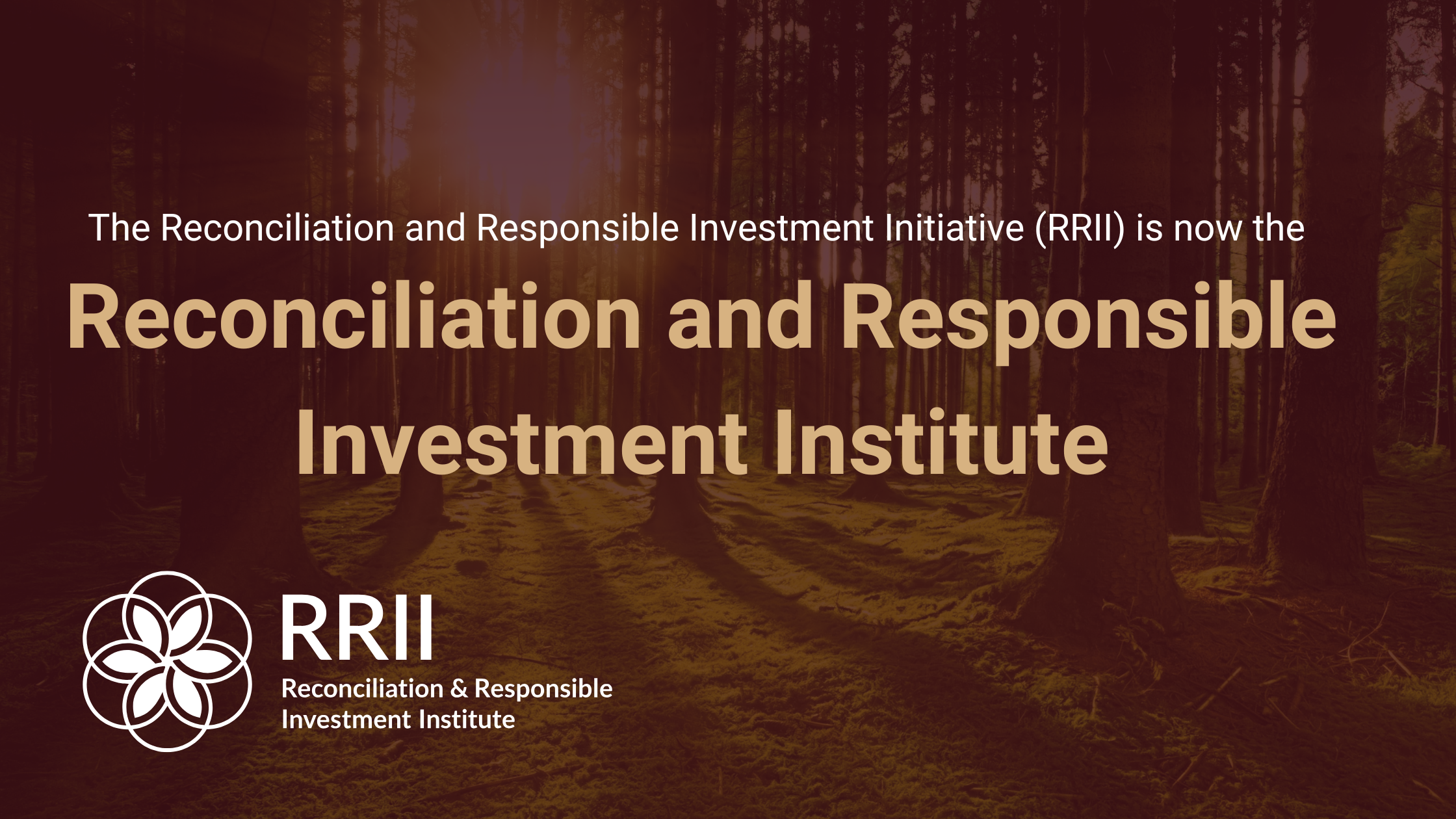June marks National Indigenous History Month, providing us with the opportunity to reflect upon the diverse histories, strengths, and contributions of First Nations, Metis, and Inuit peoples.
To mark this important month, the Reconciliation and Responsible Investment Initiative (RRII), together with The Circle on Philanthropy and with support from the Qube Foundation, is pleased to announce a new research project exploring Indigenous perspectives on fiduciary duty.
The research is being led by Dr. John Borrows, Canada Research Chair in Indigenous Law, and Research Associate Shayla Praud, a student in Canadian Common Law and Indigenous Legal Orders (JD/JID) at the University of Victoria.
Background:
Where specific claims agreements, impact benefit agreements, or other financial settlements have resulted in the creation of Indigenous trusts, Indigenous trustees manage and oversee these financial assets for the benefit of others. As such, they are bound by their duty as fiduciaries, including a duty of loyalty and a duty to act in good faith to the trusts’ beneficiaries, including both current and future generations.
Yet Indigenous trustees have expressed concern that fiduciary duty as expressed in Canadian law narrowly interprets trustees’ obligations and may lead boards of trustees and their agents to focus exclusively on short-term financial returns while disregarding an understanding of fiduciary duty grounded in Indigenous legal orders. Current understandings and enactments of fiduciary duty do not explicitly incorporate Indigenous laws and traditions related to the stewardship of collective assets.
For this reason, RRII is commissioning this important research, in order to explore fiduciary duty through Indigenous legal perspectives.
Guiding questions:
Several key questions will guide this research project:
- What is an Indigenous law understanding of the duties of someone who holds assets in trust for the benefit of others?
- What can Indigenous legal orders and traditions tell us about the duties of Indigenous trustees?
- How does Indigenous law speak to the issues of applying Indigenous values, beliefs, and interests in investment policy?
- Do Indigenous law understandings conflict and/or contrast with fiduciary standards as understood in Canadian or provincial law and, if so, what is the basis for resolution?
Indigenous legal orders can provide an important basis for ensuring the effective stewardship of collective assets and fostering accountability.[1] Ultimately, Indigenous laws may help decision-makers align their investments with their community values.
Call for Input:
If you are an Indigenous trustee or decisionmaker who oversees community assets and investments, we’d love to hear from you!
- How do your community’s traditions and laws relate to your duties as a fiduciary?
- How can your community’s values, traditions, and laws be incorporated in your governance of your collective financial assets?
Please get in touch to help us with this important research.
Ultimately, we hope that this research can empower Indigenous decision-makers to steward collective financial assets (e.g., Trusts) in ways that reflect their own laws and traditions. The research findings will be used primarily for educational purposes and to raise awareness on Indigenous legal orders and traditions as they relate to fiduciary duty. We view any findings and knowledge arising from this research as public goods for the benefit of all and are eager to engage in further discussions of it with all those interested.
We look forward to sharing the results of this emergent work with the RRII community in the coming months.
[1] Borrows, John. 2005. Indigenous Legal Traditions in Canada. Washington University Journal of Law & Policy, Vol. 19. https://openscholarship.wustl.edu/cgi/viewcontent.cgi?article=1380&context=law_journal_law_policy


